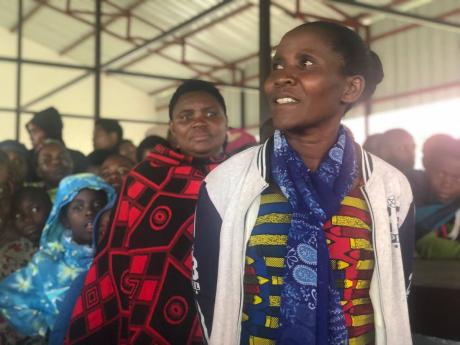Earth Today | Study offers insight into gender considerations for climate action
A RECENT study, produced by the Adaptation Fund (AF), examining best practices and lessons in mainstreaming gender in select AF projects found common threads that can serve as learning models.
The study, ‘Assessing Progress: Integrating Gender in AF Projects and Programmes’, focused on a review of successes and lessons learned in mainstreaming gender elements in five AF projects within distinct geographic regions: Ecuador, Mongolia, Morocco, and Seychelles.
It showed that integrating gender elements throughout project design, implementation, and monitoring and evaluation has multiple benefits, and highlighted effective approaches, tools, challenges and learning opportunities for increasing and accelerating gender mainstreaming efforts across the adaptation field.
“The study provides an overview of lessons on mainstreaming gender in select projects funded by the Adaptation Fund that are of value to those working in this field,” said Cristina Dengel, AF’s knowledge management officer.
“The report captures knowledge to support accelerating learning on effective women’s empowerment and gender-responsive adaptation strategies and measures throughout a project’s lifecycle. The key take-home message showed that integrating gender elements in project design, implementation, monitoring and evaluation has multifaceted benefits. It also detailed challenges and limitations to serve as a learning opportunity for implementing entities in current and future interventions,” she added.
The study arose from AF’s learning-and-sharing strategic pillar to advance and disseminate timely knowledge and experiences from among its 100 concrete projects on the ground.
“Some of the common successes arising from these select case studies were grounded in awareness-raising efforts, identification of gender inequalities through gender assessments, associated gender-specific activities, organisation of informational workshops designed to build women’s and men’s capacity to adapt to climate change, skills training for women and men promoting diversified income opportunities, and coherence-building on issues for gender equality and environmental and social management through alliances and associations,” noted Dengel.
DRAWBACKS
“Challenges and limitations were due to factors ranging from the context of the project and enabling environment to low capacity in integrating gender considerations, or political will,” she said further.
For its part, the fund, according to new Chair Ibila Djibril, “has been very advanced with its efforts to integrate gender considerations into adaptation”.
“These concrete examples of gender mainstreaming in action show how they can enhance project effectiveness on the ground in vulnerable countries,” he said.
Manager at the fund, Mikko Ollikainen, agreed.
“Advancing gender equality and the empowerment of women and girls is one of the cross-cutting principles of our medium-term strategy focused on action, innovation and learning. This study takes a comprehensive look at a strong cross-sample of projects funded by the Adaptation Fund that are effectively putting this into action,” he said.
“We hope these case examples can serve as sources of ideas and inspiration for future climate-adaptation projects, in how integrating gender considerations in project design can yield better adaptation results and, at the same time, promote greater gender equality in the communities that benefit from these projects. We are happy to share these lessons with other funds and agencies that serve to implement the Paris Agreement, and enhance our collective effort,” he added.
The study, which was conducted by an external gender specialist in consultation with AF staff, further builds on the AF’s work to support gender mainstreaming and provide equal opportunities for women and men in projects through its progressive environmental and social policies, and gender policy and action plan that are aligned with the Paris Agreement and United Nations Sustainable Development Goals.

